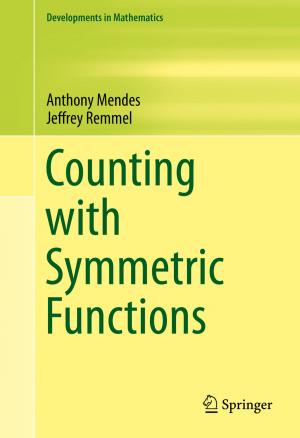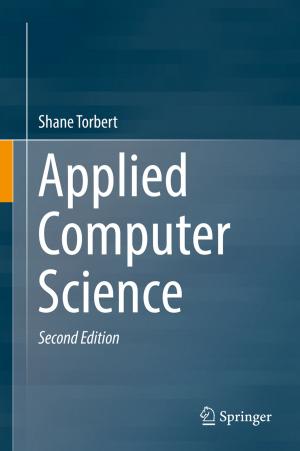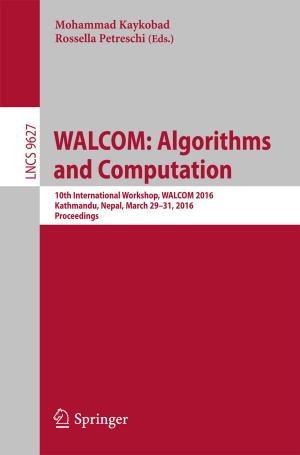| Author: | Fabrizio Colombo, Irene Sabadini, Daniele C. Struppa | ISBN: | 9783319492650 |
| Publisher: | Springer International Publishing | Publication: | December 8, 2016 |
| Imprint: | Springer | Language: | English |
| Author: | Fabrizio Colombo, Irene Sabadini, Daniele C. Struppa |
| ISBN: | 9783319492650 |
| Publisher: | Springer International Publishing |
| Publication: | December 8, 2016 |
| Imprint: | Springer |
| Language: | English |
This Briefs volume develops the theory of entire slice regular functions. It is the first self-contained, monographic work on the subject, offering all the necessary background information and detailed studies on several central topics, including estimates on the minimum modulus of regular functions, relations between Taylor coefficients and the growth of entire functions, density of their zeros, and the universality properties. The proofs presented here shed new light on the nature of the quaternionic setting and provide inspiration for further research directions.
Also featuring an exhaustive reference list, the book offers a valuable resource for graduate students, postgraduate students and researchers in various areas of mathematical analysis, in particular hypercomplex analysis and approximation theory.
This Briefs volume develops the theory of entire slice regular functions. It is the first self-contained, monographic work on the subject, offering all the necessary background information and detailed studies on several central topics, including estimates on the minimum modulus of regular functions, relations between Taylor coefficients and the growth of entire functions, density of their zeros, and the universality properties. The proofs presented here shed new light on the nature of the quaternionic setting and provide inspiration for further research directions.
Also featuring an exhaustive reference list, the book offers a valuable resource for graduate students, postgraduate students and researchers in various areas of mathematical analysis, in particular hypercomplex analysis and approximation theory.















